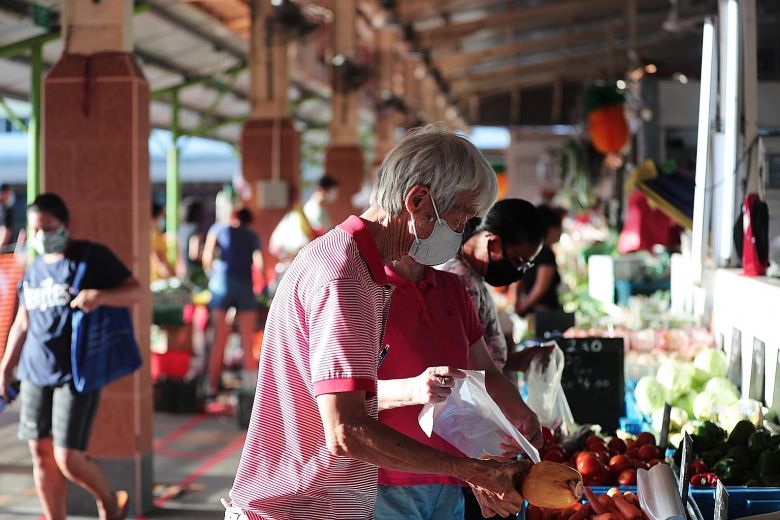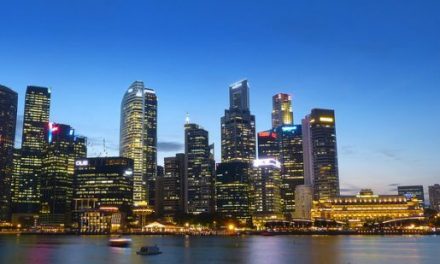Malaysia may become an ageing nation earlier than expected, statistics show
Malaysia may become an ageing nation earlier than predicted after the country recorded the lowest fertility rate in four decades with fewer babies born in 2020, according to the Statistics Department. “Looking at the last 10 years, for every thousand population, on average 17.2 people were born and 4.6 people died with a ratio of 3.7 births per one death. The decline in the ratio has an impact on the population structure in Malaysia. This will cause Malaysia to shift to an ageing nation earlier than previously projected, with the elderly population aged 60 years and above expected to reach 15.3% by 2030,” said chief statistician Datuk Seri Dr Mohd Uzir Mahidin. The report also revealed that fewer babies were born in 2020 as the country hit its lowest fertility rate in 40 years. The three most fertile states are Terengganu (2.9 babies), Putrajaya (2.8 babies) and Kelantan (2.7 babies). Penang, meanwhile, recorded the country’s lowest birth rate out of all states. (The Star)

Malaysia to fully reopen by end-2021, says Tengku Zafrul
Malaysia’s economy is expected to be fully re-opened by the end of the year, before resuming to pre-pandemic growth in 2022, said Finance Minister Tengku Datuk Seri Zafrul Abdul Aziz. Malaysia’s growth rate had been projected at 5.8% and 6.0% in 2022 by the World Bank and International Monetary Fund (IMF) respectively, he added. “This performance will be supported by a gradual normalisation of domestic economic activities, as well as the positive spill over effects from continued improvement in external demand,” he said. Additional growth drivers will include increased commodity-related production capacity, a global tech up cycle and faster progress of large infrastructure projects with high multiplier effects. (NST Online)
Economists suggest tax hike as necessary to fund 12MP projects
Three prominent economists would like to see the federal government raise taxes as a way to fund development and fix an economy devastated by Covid-19. Support for new taxes, particularly on Malaysia’s wealthy and businesses that have profited massively during the height of the pandemic, have been floated in Parliament and public platforms in recent days. The idea has become the centrepiece of a policy debate around how to fund the RM400 billion of development expenses under the five-year 12th Malaysian Plan. Former Asian Development Bank economist Jomo Kwame Sundram said the best time to raise the tax rates is now because it won’t pinch. Muhammed Abdul Khalid, the economist who led various key researches on poverty and inequality, said the Malaysian tax system is regressive, and a reflection of poor fiscal management. He criticised the government’s hesitancy to impose a windfall tax on industries that profited during the pandemic, such as the rubber glove industry. (Malay Mail)
Survey finds Malaysians trust doctors the most, politicians the least
A recent survey showed that doctors are the most trusted profession in Malaysia — surpassing teachers who held the top spot in 2019 — while trusting politicians the least. The survey, titled Trust in Professions by market analysts Ipsos shared that doctors hold the top spot for the most trusted professions, with 68% of Malaysians considering them trustworthy, followed by teachers (65%), scientists (57%), armed forces (52%) and judges (49%). Ipsos noted that the world also trusts doctors the most. “More Malaysians have been interacting with the healthcare system than ever before, and it’s reflected in doctors surpassing teachers as the most trusted profession,” said Lars Erik Lie, associate director of Ipsos’s public affairs department. The survey also found that politicians hold the lowest trust margin among the public, with only 19% of Malaysians considering them trustworthy. The second and third lowest trusted professions are ministers at 24%, and just above them, advertising executives, at 26%. (Malay Mail)

Covid-19 self-test kits set to be sold in supermarkets, chain stores this month
The Covid-19 antigen rapid test kits (self-test) are expected to be sold in supermarkets and chain stores this month, said Minister of Domestic Trade and Consumer Affairs Datuk Seri Alexander Nanta Linggi. The self-test kits are currently sold at all registered community pharmacies or health facilities nationwide. “Making these self-test kits available at selected supermarkets and chain stores will make it easier for the public to purchase them,” he said. In the meantime, the government would also ensure the new retail and wholesale ceiling prices for the self-test kits do not have an effect on the industry players. Effective Sept 5, the maximum retail price for self-test kits has been fixed at RM19.90 per set while the wholesale price is capped at RM16 per set. (The Edge)





